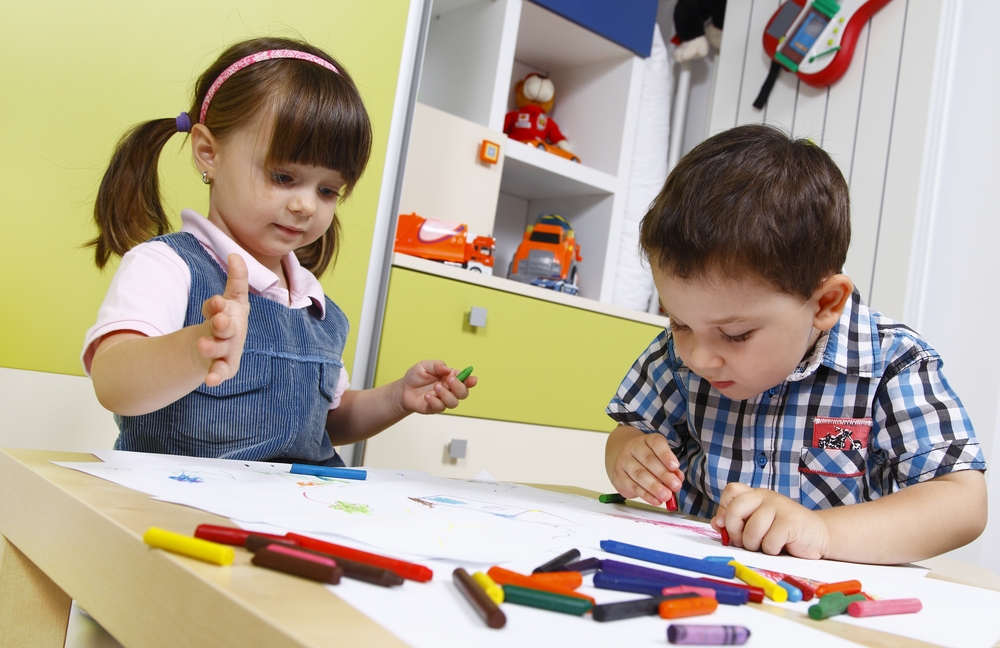The Egalia School, located in the Sodermalm District of Sweden, has completely eliminated the roles and expectations that come along with gender.
Male and females are treated identically and there are no materials present to draw distinctions between the two specific sexes. Is this truly a society in which students will benefit from as adults, or is it overly progressive and giving children a false perception of the world?
The Egalia School is primarily focused on eliminating gender-specific social conventions.
This pre-school passionately fights against the expectations that come along with being either a male or female. It wants its students to develop by using their own unbiased emotions and motives as opposed to being influenced by stories and games that clearly draw distinctions between the roles and/or personalities of men and women.
The school accomplishes this difficult feat by excluding a lot of material usually present in traditional pre-schools. For instance, the classic children’s story Cinderella, is prohibited in the Egalia School due to its archaic depiction of marriage and the role of males and females in the courting and marital process.
In addition to banning certain stories and games with conspicuous gender distinctions, the school further instills the idea of sex-neutrality by altering their language. Pronouns such as ‘his’ or ‘hers’ are never spoken in the Egalia school. The word ‘hen,’ (a Finnish pronoun) is supplanted, as it has identical meaning but is genderless in its connotation. Furthermore, children are often referred to as “friends” instead of boys and girls.
All the girls know they are girls, and all the boys know that they are boys
Although these actions may be seen as a bit excessive and even confounding to the children as they try to navigate through the early stages of life, the director of the Egalia School, Lotta Rajalin, assures that the children are by no means confused. “All the girls know they are girls, and all the boys know that they are boys:
We are not working with biological gender, we are working with the social thing.
The main goal is not to diminish gender itself, but wane the social stigma that comes along with it. Children often grow up with a mindset that they can only do so much and only achieve certain things because they either a male or female. This ideology forms at an early age due to all the material that solidifies these gender roles. The policy at the Egalia School was created to fight this predisposition many people grow up with.
Rajalin cites this mission as a way of giving children the opportunity to see all of reality.
We [the Egalia School] want to give the whole spectrum of life, not just half – that’s why we are doing this. We want the children to get to know all the things in life, not to just see half of it.
Even though the intentions are definitely genuine and favorable, some believe the Egalia School is idealistic and quixotic.
The Egalia school is priming children to grow up without the emotional or societal limitations that prevail with gender identification. However, the rest of the world is not necessarily going to be in accordance with this ideology. Gender is one of the most distinctive qualities of a person. Dismissing the importance of, or mitigating the inherent role gender plays, is perhaps increasing the limitations on children as opposed to removing them; the school’s primary objective.
Who do they [the Egalia School] think they are fooling?
Philip Hwang, a professor of Psychology at the University of Gothenburg argues that the school’s efforts are not only foolish, but completely ineffective. Hwang argues that the policy is “naive to say the least.” He goes on to add that he finds the whole idea “a bit funny – who do they [the Egalia School] think they are fooling?”
Past research also laboriously debunks the mission set in place by the Egalia School. The scientific community has consistently and comprehensively proven that boys and girls are different, very different. The differences between genders, however, extend beyond what the eye can see.
Research reveals major distinguishers between male and female brains. Therefore, allowing a child to choose a gender is not as simple as letting him/her select a toy. In fact it would seem to cause more confusion in the child’s developing mind because most children are not born into the wrong gender, in fact it is quite rare.
Gender researchers have also proven that there is indeed a difference in the brains of males and females. These differences begin at conception and continue to develop in the fetus throughout birth and beyond. It is imperative that a child know their biological identity. If the lines are blurred too much, it can be successfully argued that the child would in fact feel genderless and not be able to identify with either gender at any point in their life: leading to a plethora of developmental issues and extreme feelings of isolation
Stripping away gendered meanings would eliminate an essential part of our own identity. The main impetus of why people transition away from their biological gender IS because they do not identify with that gender. Raising children in an agender world is unrealistic and impractical. A genderless society is a society of complete uniformity sorely lacking in self expression. Our unique gender expressions would cease to exist.
Join the #NDFDebate about The Egalia Schools! Share your opinions at @novakfoundation















